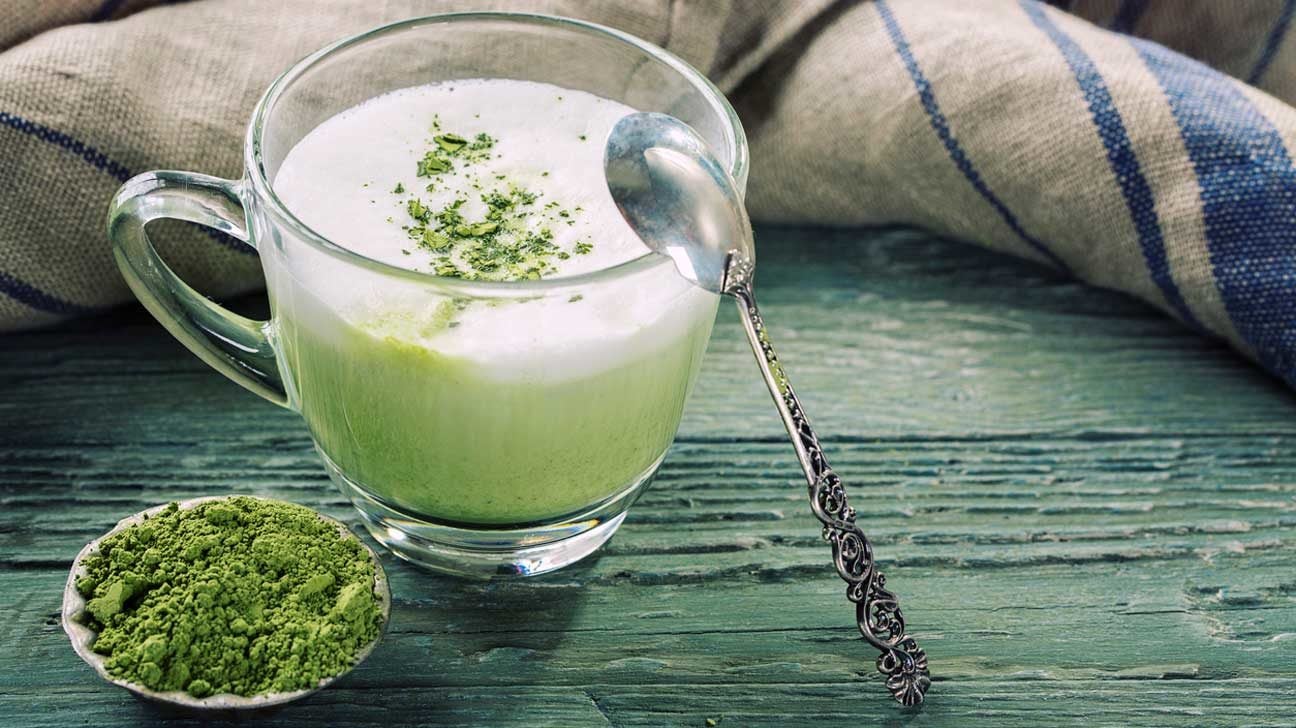7 Proven Health Benefits of Matcha Tea: Matcha tea is very famous, and you can add it to more than just hot drinks. You can put it in smoothies, cakes, and snack bars. Here, registered nutritionist Kerry Torrens answers your questions about matcha, such as what it is, how to eat it, and how to get the most out of it.
7 Proven Health Benefits of Matcha Tea
What is matcha tea?
Matcha is a kind of green tea that is made from the smooth, ground leaves of the Camellia sinensis plant. “Matcha” tea was first served at Japanese tea ceremonies, but now it’s easy to find and is used in cooking and the food business.
Matcha comes from the same plant as green tea, but it is grown in a different way, so it has a different set of nutrients. For most of the growth season, bamboo mats are placed over the plants. This increases the amount of chlorophyll in the leaves, which gives them their bright green color.
The leaves come from the youngest and freshest part of the plant. They are cooked to keep their color and nutrients, and then they are dried with a special machine called a tencha-ro. The stems and veins of the last bit of “tencha” are cut off, and the leaves are then ground into a fine powder. So, when we drink a cup of matcha, we drink the whole leaf, not just the tea made from the leaves.
Some things that are sold as “matcha” might actually be green tea powder. It’s not always easy to tell these powders apart because they look so much alike. They are commonly used in foods like cake and ice cream.
Also see: Top 10 Best Mediterranean Diet
How to prepare matcha tea
Put 1 to 2 teaspoons of matcha powder into a tea bowl and fill it with hot water that is not boiling. Shake the tea hard in a zigzag pattern until it foams up, and then enjoy!
Nutritional benefits of matcha tea
Because of the way they grow, tea plants make more of certain nutrients, including L-theanine and other amino acids, polyphenols (which are plant substances), and antioxidants like vitamin C. Compared to other drinks, matcha also has a lot of caffeine.
If you want to make tea, know that the temperature of the water will affect how healthy it is. For the best results, always use hot water that is not boiling.
7 Proven Health Benefits of Matcha Tea
1. High in protective polyphenols
Polyphenols are chemicals that are known to keep the body healthy and help you eat a balanced, healthy diet. Matcha tea has a lot of these plant chemicals that are good for you, but it doesn’t always have a lot of the catechins that green tea is famous for.
This is because the younger leaves and growing conditions in the shade make less of some of these chemicals, like epicatechin and epigallocatechin, while making a lot more of others, like epigallocatechin gallate. The special way the product is made also keeps a lot of the plant’s nutritional value.
2. Boosts brain health, function and alertness
Matcha has a lot of antioxidants, chlorophyll, caffeine, and L-theanine, all of which are good for brain health. Caffeine is a stimulant that affects the central nervous system.
It speeds up the brain’s energy intake and makes you more alert and better at remembering things. Along with the catechins in matcha, caffeine is an antioxidant that may help stop neurological diseases like Alzheimer’s and Parkinson’s from happening or getting worse.

7 Proven Health Benefits of Matcha Tea
3. May have a stress-relieving effect
L-theanine is an amino acid that might be good for the nervous system. To make you feel calmer, it raises the amounts of the neurotransmitter GABA, which calms and soothes the mind.
However, how helpful your cup of matcha is varies on where it came from and how the plant was shaded while it was growing, which raises the amount of L-theanine in the plant.
There is a lot of L-theanine in traditional Japanese matcha, but not as much caffeine or catechins. Unfortunately, widely processed matcha doesn’t always meet this ratio, so it doesn’t have these benefits for reducing stress.
4. May support a healthy heart and cardiovascular system
Studies show that both green tea and matcha are good for you if you want to lower your risk of heart disease and conditions like heart attack and stroke that are linked to it. One way it might help is by making it easier to control cholesterol.
5. May be good for bone health
Some studies show that drinking tea, especially different kinds of green tea, may help strengthen your bones and lower your risk of breaking them. It looked like green tea, like matcha, was better at improving bone mineral density than other types of tea. This might be because it has more plant compounds, less oxidation, and more antioxidants.
6. May aid weight management
Certain plant chemicals and caffeine found in matcha and other types of green tea may speed up fat burning in people who have a lot of belly fat, according to studies. Some people feel these effects even stronger when they drink matcha and walk quickly for 30 minutes every day.
7. May support blood sugar management
A lot of research shows that green tea, like matcha, might make our bodies respond better to the hormone insulin that controls blood sugar. This could make it easier for us to keep our blood sugar under control.
Is matcha tea safe for everyone?
Most people agree that matcha tea is safe for them. But if you’re allergic to caffeine, you should cut down on all of your caffeine-containing drinks, including matcha. Too much caffeine from any source can make it hard to sleep and, in some people, make them more anxious.
If this sounds like you, try cutting back on your caffeine intake and having your last caffeinated drink around noon. Women who are pregnant are another group that should limit how much caffeine they drink.
You should know that, like other teas, matcha has tannins that can make people with iron-deficiency anemia sick. Because these natural chemicals stop iron from being absorbed, you shouldn’t drink tea with your meal. Instead, wait at least an hour before you have a cup.
If you like our post about 7 Proven Health Benefits of Matcha Tea, please share with your friends and loved ones.


